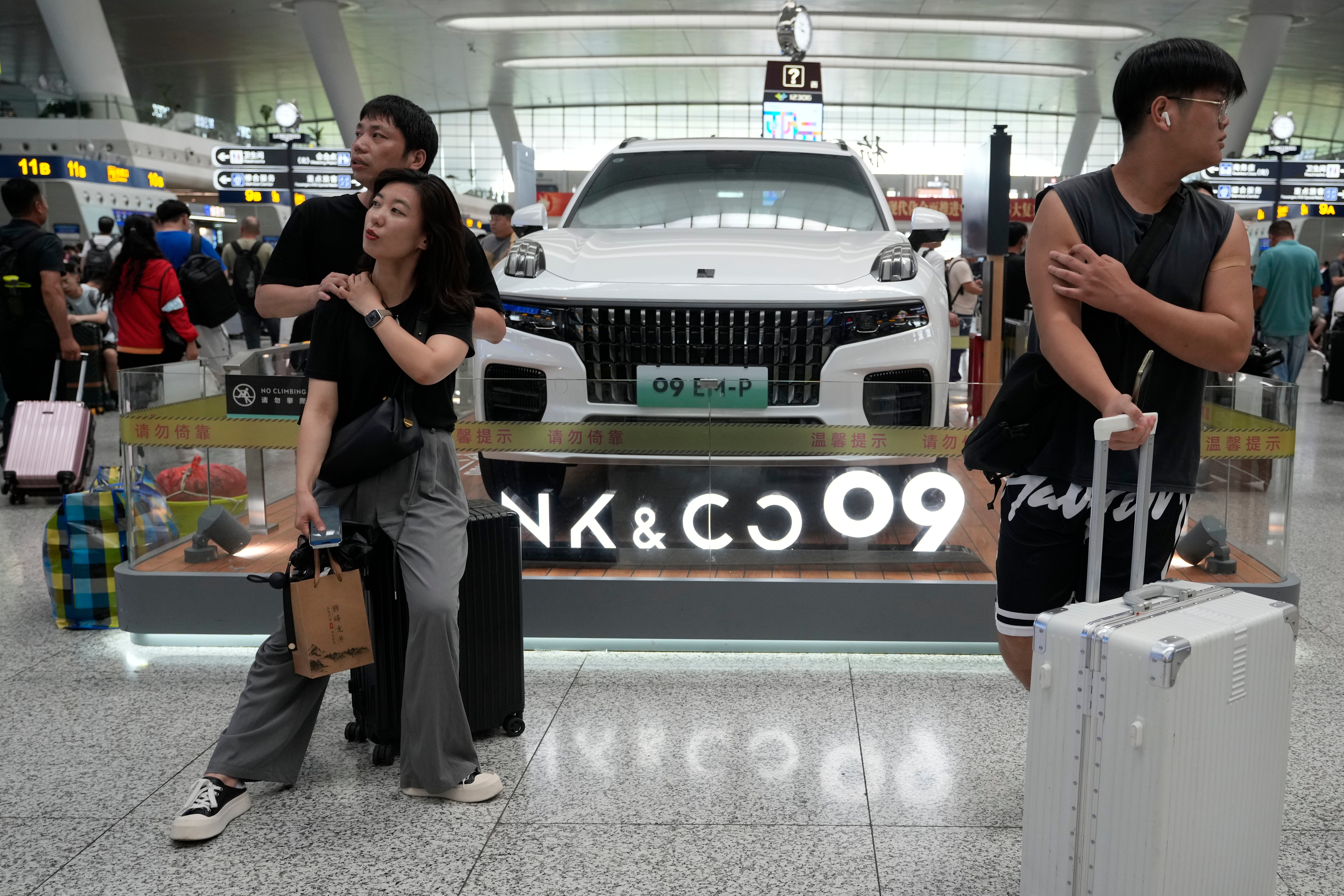China's auto sales rise 8.8% in first half of 2023, but growth is fading as economy cools
An industry group says China’s auto sales rose 8.8% over a year earlier in the first half of 2023 as electric vehicle purchases surged

China’s auto sales rose 8.8% over a year earlier in the first half of 2023 as electric vehicle purchases surged, but growth is fading as an economic rebound following the end of anti-virus controls cools, an industry group reported Tuesday.
Sales of SUVs, sedans and minivans rose to 11.3 million, decelerating from 2022's 9.5% growth, according to the China Association of Automobile Manufacturers. Total vehicle sales including trucks and buses rose 9.8% to 13.2 million.
CAAC earlier forecast this year's annual sales growth might fall to as low as 3%.
Global automakers look to China to propel sales growth as U.S. and European demand flattens and are pouring billions of dollars into developing electrics to meet government sales quotas. They face growing competition from Chinese brands that are developing rapidly, taking market share and starting to compete with global majors in their home markets by exporting to Europe and Japan.
China’s economic growth rebounded to 4.5% over a year earlier in the first three months of 2023 from last year’s 3%, the second-lowest annual level in decades. But that recovery faded faster than expected as factory and consumer activity weakened. The ruling Communist Party's growth target this year is “about 5%,” but some private sector forecasters expect as little as 4%.
Growth in auto sales fell to just 2.1% over a year earlier in June for a total of 2.3 million. Total vehicle sales decelerated to 4.8% for a total of 2.6 million.
Sales of gasoline-electric hybrid and pure-electric vehicles rose 44.1% in the first six months of 2023 to 3.7 million, less than half of 2022's annual growth of 93.4%, according to CAAM. Their share of total sales rose to a record 28.3% from last year's 25.6%.
Electrics sales growth slowed to 35.2% over a year earlier in June for a total of 806,000.
China's leaders have made it the biggest market for electrics by investing billions of dollars in subsidies to get an early lead in what is seen as a promising industry. Beijing has shifted the burden to automakers by requiring them to earn credits for selling electrics, which requires them to develop models buyers want without subsidies. They are forming partnerships to share multibillion-dollar development costs.
Electric vehicle makers including BYD Auto and Geely Group's Zeekr unit began sales this year in Japan and Europe. Geely also owns Sweden's Volvo Cars and its all-electric luxury brand, Polestar.
Sales by Chinese brands rose 19.7% over a year earlier to 2 million, down from 2022's 22.8% growth, according to CAAM.
Exports rose 75.7% over a year earlier in the first half to 2.1 million. Growth in June downshifted to a still-robust 53.2% for a total of 382,000.
Bookmark popover
Removed from bookmarks